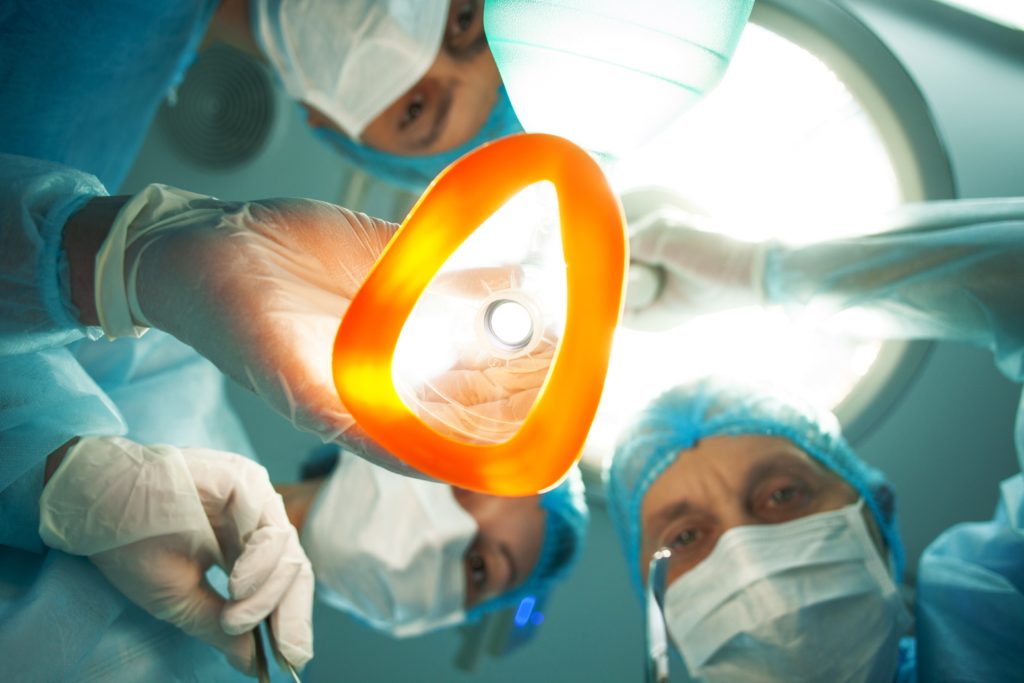Anesthesia providers are responsible for patients before, during and after procedures. They not only administer medications and monitor vital signs, but also oversee patients’ emergence from anesthesia. Various factors can affect a patient’s awakening process, including the patient’s medical history, anesthetic drugs, duration of surgery and pain.1 With the use of fast-acting anesthetic agents, patients usually awaken quickly in the immediate postoperative period, and gradually recover full function during intermediate (one-hour) and long-term (hours or days) stages.1,2 Sometimes, however, patients may regain consciousness later than expected, known as “delayed awakening.”1 Depending on the cause, delayed awakening from surgery can have serious long-term effects on a patient’s health.3 Therefore, a quick postoperative recovery is often one of the main goals of the anesthesiologist.1 In order to reduce complications, anesthesia providers must consider risk factors and causes of delayed emergence, and—if it occurs—evaluate and manage postoperative recovery.1
The main cause of delayed recovery from anesthesia is usually pharmacological.1 Pharmacological factors include dose, absorption, distribution, metabolism, excretion, half-life, pharmacodynamics, pharmacokinetics and respiratory effects of drugs taken throughout the perioperative period.3 These variables are crucial to the anesthesiologist’s practice, as a miscalculation and/or failure to account for biological interactions can lead to prolonged recovery.4 Also, the type of anesthetic drug used can have a profound effect on emergence time. For example, one study found that benzodiazepines and barbiturates caused patients with intellectual disabilities to spend longer than others in an unconscious postoperative state.5 Another study showed that administration of remifentanil while lowering the concentration of desflurane improved recovery time after deep extubation.6 In an experiment by Bruder et al., researchers administered extra propofol to sedate patients for two hours after surgery, resulting in elevated stress markers such as oxygen consumption and noradrenaline blood levels.7 This finding debunked the hypothesis that delayed awakening after neurosurgery would attenuate general anesthesia recovery symptoms, such as tachycardia and hypertension.7 Indeed, several researchers have intentionally delayed recovery in attempts to alleviate rebound effects, with no significant differences between groups.8,9 Proper use of appropriate medications is key to a quick recovery, which may reduce postoperative stress markers.
Other causes of prolonged unconsciousness are surgical, metabolic, neurological and more.3 Oftentimes, many factors combine to cause delayed recovery.3 Surgical causes of delayed awakening include use of muscle relaxation, duration of surgery, regional anesthesia induction and the presence or absence of pain.3 For instance, the presence of postoperative pain actually speeds up the return to consciousness.3 Metabolic causes of delayed awakening include hypo- or hyperglycemia, electrolyte imbalances or dehydration.3 Neurological issues such as ischemia,3 as well as cardiac diseases,4 can also lead to delayed awakening. Further factors include postoperative hypothermia or respiratory failure,3 genetic factors,10 diabetes,11 age4 or even unwillingness of the patient to awaken.12
Given the array of factors that can lead to delayed recovery from anesthesia, assessment of each individual case3 and accurate diagnosis2 are crucial to proper treatment. After identifying a possible cause, the anesthesia provider will eliminate the remnants of anesthetic drugs in the patient, reduce hypothermia, correct metabolic abnormalities, provide antibiotics or steroids if necessary, replenish blood fluids and possibly monitor the patient in the intensive care unit (ICU).1 Delayed emergence from anesthesia can so greatly affect a patient’s health that some medical schools have incorporated delayed recovery simulations into their anesthesiology curricula.13 Future research and policy should standardize the approach to delayed recovery as to reduce risk of complications.13
1. Misal US, Joshi SA, Shaikh MM. Delayed recovery from anesthesia: A postgraduate educational review. Anesthesia, Essays and Researches. 2016;10(2):164–172.
2. Frost EA. Differential diagnosis of delayed awakening from general anesthesia: a review. Middle East Journal of Anaesthesiology. 2014;22(6):537–548.
3. Sinclair RCF, Faleiro RJ. Delayed recovery of consciousness after anaesthesia. Continuing Education in Anaesthesia Critical Care & Pain. 2006;6(3):114–118.
4. Douglas JH, Ross JD, Bruce DL. Delayed awakening due to lidocaine overdose. Journal of Clinical Anesthesia. 1990;2(2):126–128.
5. Maeda S, Tomoyasu Y, Higuchi H, Ishii-Maruhama M, Egusa M, Miyawaki T. Independent Predictors of Delay in Emergence From General Anesthesia. Anesthesia Progress. 2015;62(1):8–13.
6. Kim MK, Baek CW, Kang H, et al. Comparison of emergence after deep extubation using desflurane or desflurane with remifentanil in patients undergoing general anesthesia: A randomized trial. Journal of Clinical Anesthesia. 2016;28:19–25.
7. Bruder N, Stordeur J-M, Ravussin P, et al. Metabolic and Hemodynamic Changes During Recovery and Tracheal Extubation in Neurosurgical Patients: Immediate Versus Delayed Recovery. Anesthesia & Analgesia. 1999;89(3):674.
8. Viitanen H, Annila P, Viitanen M, Tarkkila P. Premedication with Midazolam Delays Recovery After Ambulatory Sevoflurane Anesthesia in Children. Anesthesia & Analgesia. 1999;89(1):75–79.
9. Bevan JC, Veall GRO, Macnab AJ, Ries CR, Marsland C. Midazolam Premedication Delays Recovery After Propofol Without Modifying Involuntary Movements. Anesthesia & Analgesia. 1997;85(1):50–54.
10. Yonekura H, Murayama N, Yamazaki H, Sobue K. A Case of Delayed Emergence After Propofol Anesthesia: Genetic Analysis. A A Case Reports. 2016;7(11):243–246.
11. Saitoh Y, Hattori H, Sanbe N, Nakajima H, Akatu M, Murakawa M. Delayed recovery of vecuronium neuromuscular block in diabetic patients during sevoflurane anesthesia. Canadian Journal of Anesthesia. 2005;52(5):467–473.
12. Albrecht RFI, MD, Wagner IV SR, MD, Leicht CH, MD, Lanier WL, MD. Factitious Disorder as a Cause of Failure to Awaken after General Anesthesia. Anesthesiology: The Journal of the American Society of Anesthesiologists. 1995;83(1):201–204.
13. Ellis TA, Edberg JL, Kumar N, Applefield DJ. Delayed Emergence From Anesthesia: A Simulation Case for Anesthesia Learners. MedEdPORTAL. 2017;13:10628.
